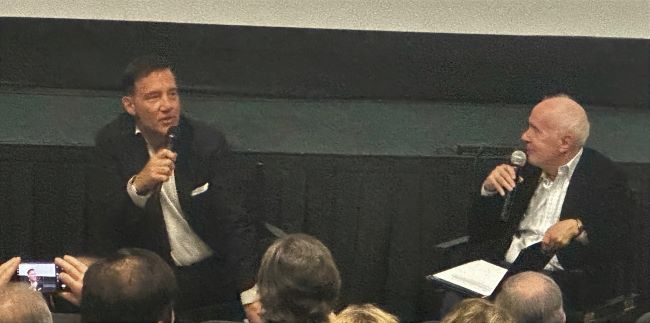
Clive Owen and critic Stephen Farber discuss “Croupier” Wednesday night at the Laemmle Royal in Los Angeles.
Writers are a bit like gamblers. They look for lucky breaks, they hope agents or editors will give their work a chance, they meet deadlines with a nervous mix of triumph and trepidation. Win, lose or break even, they keep taking the bet.
This comparison comes to life in “Croupier,” a British neo-noir directed by Mike Hodges and starring Clive Owen, which released in the US in 2000 and put Owen on the path to Hollywood stardom. The film screened Wednesday night at the Laemmle Royal, as part of the Anniversary Classics Series, with Owen in attendance.
Owen plays Jack Manfred, a man in need of a job and a writer in search of material. He finds it amid the grit, stale glamour and greed at the Golden Lion casino in London – a job his cheerful grifter father Jack Sr. (Nicholas Ball) has secured for him. His dad likely has had more downs than ups in his business ventures, but breezily pretends to be a big success.
Night after night, cooly detached Jack sees people at their worst as he encounters shady players, sweaty addicts and sexy ladies. While we see him deal cards, we hear the voiceover of his novel in progress based on his observations at the casino – his inner monologue is reminiscent of the flashback VO recounted by screenwriter Joe Gillis (William Holden) in “Sunset Boulevard” (Billy Wilder, 1950).
When not working, Jack is writing or sleeping, and friction grows with his supportive, supremely loyal, live-in girlfriend Marion (Gina McKee), a department-store security guard. She’s put off by the cynical tone of his book and by the main character who enjoys seeing people lose.
Though Jack says he cannot tolerate cheaters and claims he never gambles, he is a scribe on the sly, after all, and it’s not long before he performs some slick shuffling of his moral code – his risk-taking begins with entanglements that put his job on the line. He’s drawn to co-worker Bella (Kate Hardie) and flirts with a mysterious casino patron hailing from South Africa named Jani (Alex Kingston). “If you don’t call me, I’ll understand, but I hope that you do,” she informs him matter of factly, as she hands him her phone number.
Not surprisingly, this cig-puffing femme fatale leads Jack further down the road of debauchery, tempting him with a simple role in an inside-job robbery. Steely-eyed, laconic Jack exudes an enigmatic intensity and shows little to no emotion – except on the rare occasion when he completely loses control.
Fast paced with brisk editing and harsh, bleak lighting (nary a noir shadow here), “Croupier” is smart, engrossing, entertaining and laced with moments of dry humor.
Paul Mayersberg’s suspenseful script touches on sexual politics, class divisions, family dynamics, creating art, the duality of human nature and the randomness of existence. If the ending is slightly pat, it doesn’t spoil the story. Owen gives a fine performance as the unflinching anti-hero and his fellow cast members meet him every step of the way, each shining in their roles.
At Wednesday’s screening, critic Stephen Farber and veteran producer/marketing luminary Mike Kaplan introduced the film. Known for his ingenuity and dogged tenacity, Kaplan rescued “Croupier” from almost-certain obscurity. Released with virtually no promotion, the movie (which reportedly had a budget of £3 million) didn’t do well in England.
Director Mike Hodges (1932-2022) remarked at the time, “It wasn’t released. It escaped.” Hodges also directed “Get Carter” (1971), “Pulp” (1972), “Flash Gordon” (1980) and reunited with both Owen and Kaplan for 2003’s “I’ll Sleep When I’m Dead.” He hoped “Croupier” would fare better in America if Kaplan got involved.
“It played for a week in London and it was gone,” said Kaplan. “It was a tragedy because it’s a great movie, but it wasn’t recognized as such … It had an amazing texture of violence with a lot of integrity. It’s technically perfect and it introduced Clive Owen to an international audience in a performance that’s unlike any other.”
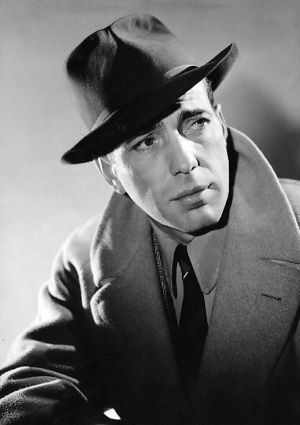
Humphrey Bogart, shown here in 1940, was one of many actors’ names critics mentioned in their reviews of “Croupier.” Last year, in a TV miniseries, Owen played Sam Spade, one of Bogart’s most iconic roles.
So, Kaplan championed the film – coming up with a brilliant ad campaign highlighting major actors Owen had been compared to in critics’ reviews. The esteemed list included Humphrey Bogart, Richard Widmark, Robert Mitchum, Sean Connery, James Mason, Nicolas Cage, Paul Newman and Clint Eastwood. “It played at the Fairfax Theatre (now closed) for two weeks and ran at the Aero, which was a second-run theater at the time, for several months,” said Kaplan.
Farber summed up: “It turned out to be a tremendous success and everybody in Hollywood took notice.”
After the film, Owen talked with Farber. Already an established actor in England, Owen recalled that the script intrigued him, especially the dialogue, which was not naturalistic. “The combination of Mike Hodges who’s very specific, very noir, very grounded and Paul Mayersberg who’s very intellectual and abstract in some ways [results in] the scenes having a kind of heightened quality,” said Owen.
Farber asked him to talk about his co-stars. “It was a great cast Mike Hodges put together,” said Owen. “The actors embraced the non-naturalistic style of dialogue and when you’re all committed to it, then the thing can sing.”
Owen added that he loves noir and has returned to the genre over the course of his career, most recently playing Dashiell Hammett’s famous private detective in the “Monsieur Spade” TV miniseries, which ran last year on AMC.
During the audience Q&A, noted Los Angeles writer and publisher of artsmeme.com, Debra Levine asked Owen to share his thoughts about the three female characters and the actresses who played them. She pointed out, in classic noir, there’s a bombshell who brings the character down and, in this film, the women have different trajectories, especially Gina McKee’s character.
Owen responded: “I actually think all the women in their own way are very strong in this movie. They’re all very independent. When I look at it, I think it’s refreshing. I think they are really great parts for women. They’re interesting and they’re powerful women. I think, especially considering it was made 25 years ago, they’re really well written parts and were fun to play. They were all really good actresses as well.”
For him, he acknowledged, the film was a major gear change, radically shifting everything. Said Owen: “It’s something that stayed with me ever since.”
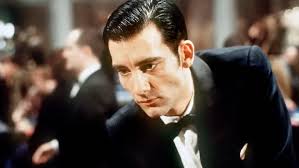
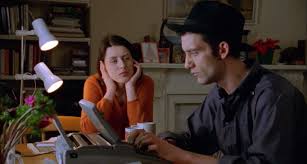
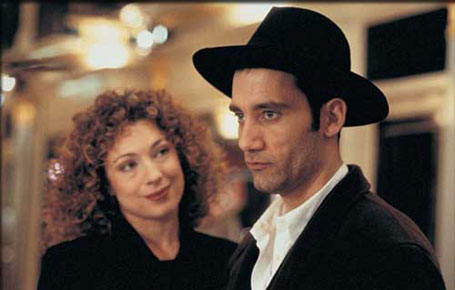
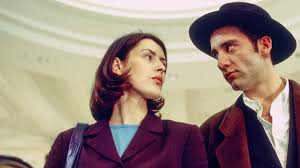





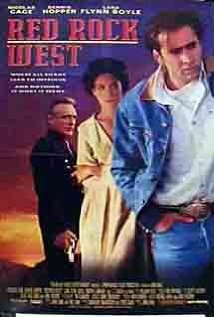
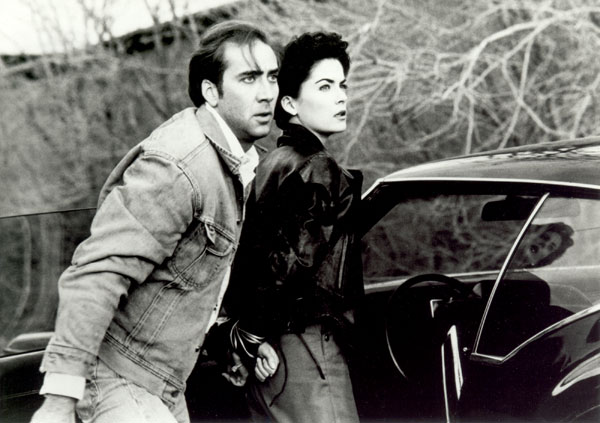
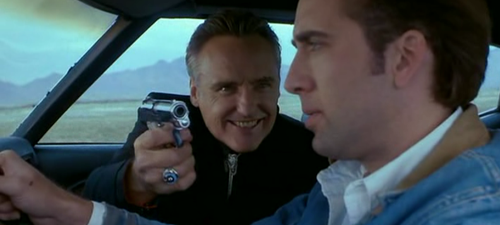
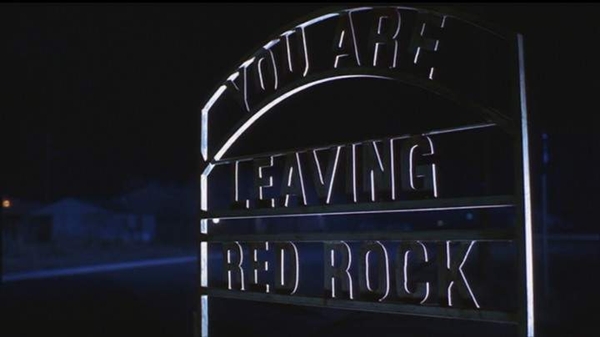





From FNB readers